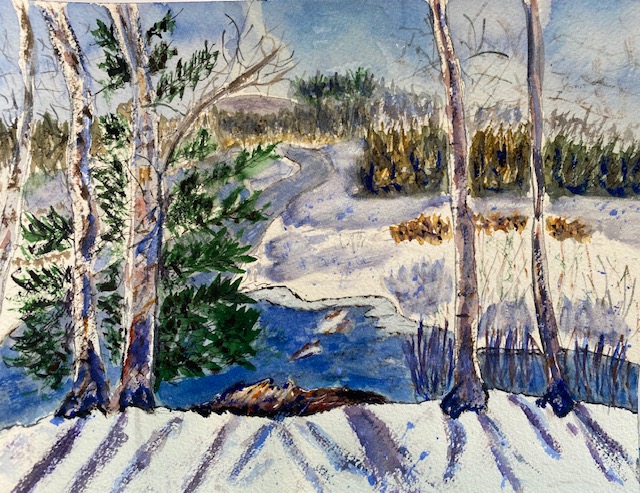
How do you feel when you see an amazing athletic or musical performance? Do you feel invigorated when you observe a stunning view in nature? Are you struck by people who go out of their way to be helpful to others without any obvious benefit to themselves?
According to scientist Dacher Keltner (see first podcast link below), this is “awe.” Awe is an internal feeling that can elevate our mood and perspective. Through hormonal and other measurements, scientists can now demonstrate how laughter, goodness, kindness, and other extraordinary “ordinary” acts can boost our internal bodily response, or our neurophysiology.
We all have experienced awe. What we may not do is pay attention to its beneficial effect on us. Here are some snippets of awe from my life:
When my kids were babies, I was brought to tears the first time such tiny beings figured out how to coordinate four limbs to start crawling. It seemed a monumental act even though we all eventually do it.
I loved watching how excited my toddler son got from jumping up and down in a puddle of water or riding in a rental car shuttle at the airport. His delight from such everyday activities got me to see the adventure in the ordinary.
When our kids were young, my girlfriends and I rejoiced when we went out for dinner or a walk. With girlfriend time most often put on the backburner among work and taking care of family, it felt indulgent and decadent in the best way.
Nothing brings a smile to my face like a funny or endearing animal video on social media.
Experiencing a national park or hiking in a gorgeous place makes me feel proud and nourished.
Seeing someone help a stranger hits me emotionally. Toni Morrison called this “allowing goodness its own speech.”
Collective Effervescence
We can experience awe in a group too. Think about how close we feel to others in a giant stadium when our team does well. Or how a beautiful song or dance gives us tingles. Or the camaraderie we feel when hiking in the same place as others we don’t know and just marveling at the scenery together. There is a compelling closeness we feel with strangers when we share such an experience. This is collective effervescence.
According to the science of awe, our vagus nerve is activated when we feel integrated with a larger community or ecosystem. The tingling sensation or goosebumps we feel are our muscles contracting around nerve follicles.
Such neurophysiological responses happen when we experience, for example, birds singing, the whistling wind, sound waves from streaming water and forest smells. This is why we are encouraged to do yoga and mindfulness meditation. It’s why we enjoy game nights, Broadway plays, big sporting events or watching how joyful our kids are while playing. We’re connecting to that which is outside of ourselves and instinctively feel better in our gut.
A salve for grief and anguish
We can search out awe to help us handle grief or a negative state of mind.
Dr. Keltner was devastated when he lost his cherished brother. He looked to walking in nature and listening to especially evocative music to help him deal with his immense loss. He was able to switch his focus from loss to appreciating the beauty in the ordinary.
Teddy Roosevelt famously went to the wilds of the Dakotas and Wyoming following the deaths — on the same day — of his young wife and mother. Being in nature and among wildlife helped him overcome his grief and restore his reason for being. It also ignited his devotion to conservation, which we are all still benefiting from today.
Over my career, I now realize I went in search of awe when I was especially stressed or down. I found myself more attuned to basic, nice behavior in others. I noticed how much it helped me when someone I barely knew smiled or said something sweet or silly. When I got home from work, I found extra solace in my kids’ hugs and my dog’s wagging tail. I might not have been as aware of these simple acts when things were better. Their goodness focused me more on their actions and less on my circumstances, bolstering my spirit and attitude.
During the pandemic, taking a robust walk was especially energizing during such a scary time. According to experts, awe and fear elicit a similar neurophysiological response. Communing with the non-human world connected me to the larger ecosystem within which we live. It felt liberating to be outside.
Our special relationship to nature is why many of us are more worried and committed than ever to preserving our environment, now that we have a greater recognition of how we imperil it.
I’m as guilty as anyone about spending too much time on my cellphone, especially if I have downtime. If instead, I used that unstructured time to look around and experience someone or something I’ve never noticed before, it would give me an opportunity to be awestruck. Even by something unremarkable. When I was at the airport recently, I intentionally put down my phone and just looked around. It was stimulating just to notice people – how they were occupying their space and interacting with others.
Sometimes on my walks I challenge myself to discover something new, even though I’ve walked the same path so many times. It always triggers an inner positive feeling.
Searching for awe is shorthand for finding meaning in the everyday. Whether through religion, music, walking outside, talking to others, helping someone, or just noticing something we’ve never bothered to pay attention to before, we can feel connected to the big systems of life.
Feeling awe provides perspective, and a good way for us to manage during our current troubling times.
Recommended Listens:
Dacher Keltner — The Thrilling New Science of Awe from the On Being podcast with Krista Tippett
Maria Shriver: “Coming Through As a Teacher” from Hoda Kotb’s Making Space podcast


Love these reflections!
Lovely and poignant. I too find the need to remind myself to slow down, and take stock of the surroundings. You will have AWE when you have grandchildren. My 7 year old grandson’s vocabulary is simply amazing. He can’t necessarily define the meaning of the words, but what’s remarkable is that he uses the words correctly!
So interesting And so true! Thanks Linda!! #sharing
Thank you for the inspiration to more often notice my surroundings and seek the beauty in my environment.! Your explanation of the neurophysiology and your personal examples are super helpful. Looking forward to being awe-struck more frequently!
Wholeheartedly agree.
What a wonderful reminder to take note of the simple acts of kindness and to create more of those. I love how you connected the notion of awe to the everyday.
Keep noticing things and blogging about them for us, Linda!
Love reading your blog, Linda. Thank you for sharing it.